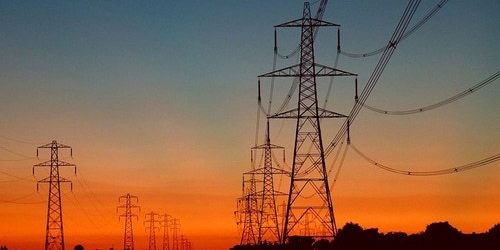ISLAMABAD: Independent power producers (IPPs) have cast off a payment plan offered by the government for partial settlement of their dues and demanded at least 50 per cent upfront cash payments before signing formal agreements for tariff discounts.
An implementation committee led by Finance Minister Dr Abdul Hafeez Shaikh had last week offered payment of about Rs450 billion to the IPPs in three equal (one-third of total) installments through a combination of cash and tradeable bonds next month, June and December 2021. Each installment was to comprise one-third (about Rs50bn) in cash and two-thirds (about Rs100bn) in bonds.
Sources in the IPPs told Dawn that the payment plan offered by the government team was unacceptable to begin with. They told the implementation committee that it appeared that the government wanted ‘renegotiations’ on the already agreed terms and conditions of the memorandums of understandings (MoUs) signed in August last year involving about Rs836bn worth of discounts against their original power purchase agreements (PPAs). “In a way, this was reopening of MoUs”, a source said.
It was explained to the government team that the IPPs were facing an acute liquidity crisis and their legitimate outstanding dues stood at about Rs450bn which the government had committed in August for upfront payment before the IPPs agreed to give “unprecedented” discounts in tariff in a major departure from their sovereign contracts. “The government should follow its side of the agreement in true letter and spirit,” the IPPs said.
They demanded that at least 50pc of Rs450bn dues should be paid in cash upfront to ease their liquidity challenges. Given the government’s pleas about tight fiscal space in view of the IMF requirements, the next two tranches could be of 30pc and 20pc in June and later, respectively, through a combination of cash and bonds.
The sources said there was no deadlock in talks. “The talks have actually begun only last week to materialise the MoUs into formal contracts and would continue for weeks,” they said.
The government also has to take some decisions on consumer power tariff to revive the IMF programme and improve revenue stream of power distribution companies (Discos) to meet their regular monthly payment schedule, an official said.
A senior government official confirmed that a “counter-payment plan is under consideration” which had come from the IPPs under the 2002 power policy, while discussions with the IPPs under the 1994 policy and with Hubco were still in the pipeline.
The sources said a group of IPPs led by the Mansha group was still reluctant to agree on the role of the National Electric Power Regulatory Authority (Nepra) in settlement of “excess payments” claimed by them in the past as alleged by an earlier investigation committee led by former SECP chairman Muhammad Ali.
This group of five-six IPPs has taken the stance that they have the legal framework of arbitration to settle any disputed amount and could not agree to go back to Nepra. The amount involved in this “excess payment category” is about Rs52bn and has been challenged by the IPPs in high courts.
The IPPs also have certain objections to the language of formal contracts shared by the government side for conversion of the MoUs into amendments/addendums to the power purchase agreements. The government side has also asked the IPPs to propose changes they wanted to make in the draft agreements.
The sources said the implementation committee had lost a lot of time in materialising the MoUs into formal agreements and swung into full throttle action after a lapse of about three months.
The sponsors of wind power projects also complained that the government had taken upon itself as part of the MoUs in August to ensure concessions on mark-up, insurance, etc, from the lenders, but no movement had so far been seen and they were handicapped to sign contracts. The MoUs are to expire on Feb 12.
The MoUs signed by four dozen IPPs, including thermal, wind, solar and bagasse, required upfront payments (about Rs425bn) stuck up in about Rs2.3 trillion circular debt to become formal contracts to be made part of their original power purchase and implementation agreements within six months. The IPPs receivables from government entities as of June 2020 are estimated at about Rs1.15tr.
On Oct 10, Dr Hafeez Shaikh had replaced Energy Minister Omar Ayub Khan as head of the implementation committee, while Tabish Gohar replaced Shahzad Qasim in the committee. All other members of the committee remained unchanged, including Babar Yaqoob Fateh Muhammad who led the negotiations with the IPPs, the secretaries of power and finance, Barrister Qasim Wadud and the chief executive of the Central Power Purchasing Agency Guarantee Ltd.





